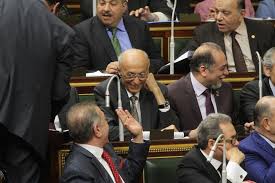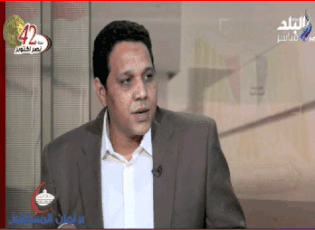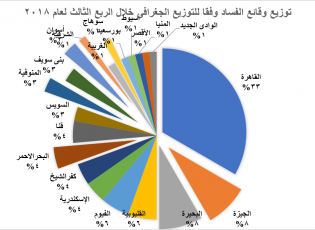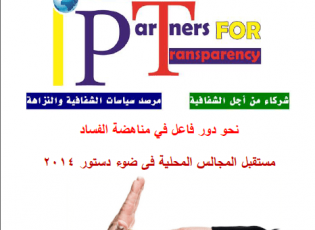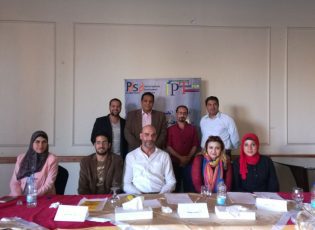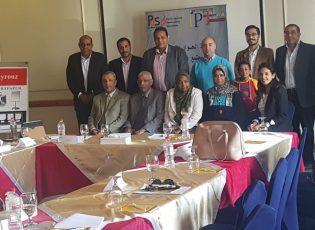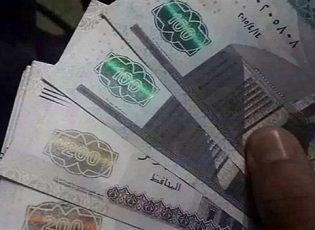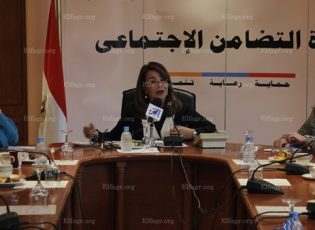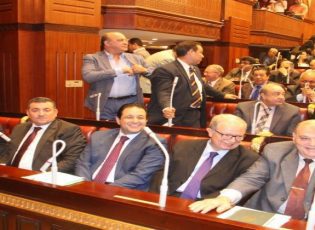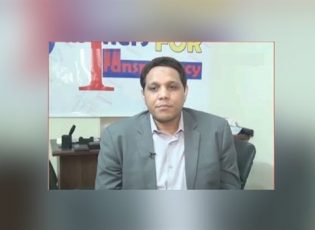A report issued by Partners for Transparency (PFT) revealed that the legislative measures taken by the President of the Republic and his government in the face of corruption during the first year appeared to be “inadequate” compared to the strong political discourse during the period from June 2014 until June 2015.
The analytical report came under the title “Corruption in the first year of Sisi's rule ... a strong political discourse and inadequate legislative procedures,” with the aim of identifying the features of the “political will” related to combating corruption, by monitoring and analyzing the political speech of President Abdel Fattah El-Sisi during the first year of his term in office. His stance on corruption, in addition to monitoring and analyzing the most important decisions and legislation related to combating corruption, as well as reviewing the most important corruption crimes that have been uncovered, and the manner in which the concerned authorities dealt with them during the same period.
The report of the Partners for Transparency Foundation (PFT) indicated that the president addressed the issue of corruption in “5” official public speeches and appeared to adopt an “intolerant” political discourse regarding corruption and the perpetrators of crimes of manipulating public money, as well as mentioning figures and statistics in some His speeches, which reveals a follow-up to the progress of cases and the work of the competent regulatory authorities.
The report added that an analysis of the president's speech revealed that he is aware of the impact of corruption on the business and investment climate in Egypt, which makes him repeatedly raise this issue during his meetings with investor and businessmen groups.
On the other hand, the report revealed that President Sisi's strong political rhetoric regarding corruption is not commensurate with the limited legislative measures that were taken during the first year of his rule. Although the president has legislative authority in light of the fact that Parliament has not been elected yet, he has not used this power - So far - in issuing or amending anti-corruption legislation to ensure that the perpetrators of these crimes do not go unpunished.
The report also criticized the limited measures taken by the executive authority, noting that they appeared to be more formal and protocol measures than practical and effective.
With regard to its analysis of some of the corruption cases that were uncovered, which amounted to “22” cases, the report indicated that the majority of the corruption cases that were uncovered involve leaders of local authorities, which confirms the negative impressions taken on the extent of corruption in the local government since the stage. Before the January 2011 revolution, which also confirms the need to amend the package of laws governing local administration in Egypt.
The report recommended the necessity of forming a national expert committee with the task of studying all existing and proposed anti-corruption legislation and presenting an integrated legislative vision for amendment and issuance immediately after the formation of the new parliament. The report also called for giving top priority to amending the laws regulating the regulatory bodies stipulated in the constitution to ensure their independence and activate their role.
Dr. Walaa Gad Al-Karim, Director General and Delegate Member of the Board of Trustees Commissioner of the Partners for Transparency (PFT) said: The Foundation was declared in accordance with the provisions of Egyptian law in December 2014 and it takes into account independence and neutrality “politically” and “ideologically”, and works within the framework of helping society Consolidating and applying the values and practices of integrity, transparency, and accountability, based in their work on an intellectual and legal framework closely related to the international system for the protection of human rights, the assumptions of social development, and standards of good governance.


